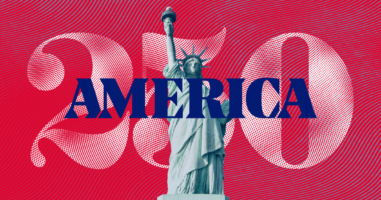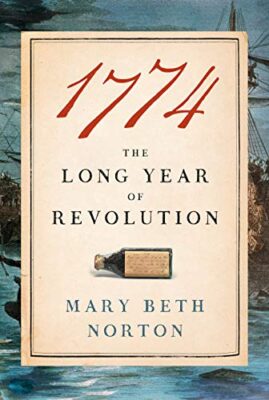
In this blog, I wish to continue the discussion on the current situation regarding the American Revolution 250th by switching to education.
1. What can be taught in the k-12 classroom?
2. How can the national history organizations help?
I begin by carrying on from the previous blog with its focus on Virginia and the 250th.
It is important to recognize that the 250th does not exist in a vacuum. So far because of the turmoil at federal commission and the time of 2026 still distant in the minds of most people, the 250th is an under-the-radar project. But we should anticipate that if the federal commission ever gets its act together and has funding, it will be caught up in the maelstrom that has enveloped the issue of standards.
SOCIAL STUDIES STANDARDS
By coincidence, the current issue of Perspectives on History by the American Historical Association (AHA) has an article “Maintaining Standards: Recent AHA Contributions to the Fight for Honest History Education.” By even more coincidence, a large portion of the article focuses on Virginia without mention of the 250th.
The article covers the effort by the Virginia Board of Education (VBOE) to revamp its History and Social Science standards. It recounts the rejection of a more than two-year project to revise the standards to a “hastily and behind closed doors” effort to completely overhaul the framework. That was between August 17, 2022 and November 11, 2022.
From its inception, the campaign to rewrite state education policy has embraced rhetoric about preventing political indoctrination in the classroom. The draft and model standards that have come out of this movement, however, themselves treat history education as a form of indoctrination. They target potentially controversial topics and ideas for elimination and reproduce a stilted caricature of history teaching and learning that harks back to a mid-20th century that never was. States like Virginia have explicitly cut references to disciplinary and transferable thinking skills, inquiry, analysis, and civic engagement, while dramatically increasing the number of names, dates, and facts that students must memorize. Carried out with little or no transparency, these efforts endanger students’ education and undermine the very notion of informed civic participation.
Bowing to public pressure, the VBOE opted to set aside the November draft and allow for a substantial rewrite. The story of the Virginia standards was far from over. But prompt intervention from concerned historians, including higher education and secondary school educators, averted a campaign to overhaul history education for political ends.
Carried out with little or no transparency, these efforts endanger students’ education and undermine the very notion of informed civic participation.
The article makes clear that it is a constant struggle. One can never relax and lower one’s guard. The battle over standards is an ongoing on likely to accelerate as people begin wanting to schedule events and programs outside of school for the 250th.
The AHA’s engagement in the review and revision of Virginia’s standards features a dense collaboration with local teachers and educational organizations. In response to widespread criticism, the VBOE promised to merge the controversial November draft with the original August standards to create a compromise proposal. The Virginia Social Studies Leaders Consortium (VSSLC) and the Virginia Association for Supervision and Curriculum Development (VASCD) invited the AHA to participate in drafting a collaborative standards document in hopes that the VBOE would consider input from educators.
AHA staff members Lauren Brand and Brendan Gillis traveled to Richmond for a two-day summit, at which representatives and members of all three organizations went line by line through each of the standards, weaving together, revising, and polishing these curricular materials to produce a strong framework for learning that reflected best practices in history and social studies education. Our staff provided guidance, encouragement, and support as classroom educators rebuilt a set of educational standards that improved on an already strong foundation. Once the initial draft was complete, we also arranged for teachers and subject-matter experts to review and vet the changes.
Yet the status of history and social studies education in Virginia remained in flux. In early 2023, the VBOE produced a fourth draft, which it subsequently approved for public review and final revision. At each stage in the process, the AHA joined with other organizations, including the VSSLC, VASCD, the Virginia Council for the Social Studies, and the National Council for the Social Studies, to issue statements and coordinate public feedback. The AHA has also encouraged members in Virginia to participate in the period for public comment and attend the six public hearings.
At this point about all one can say is stay tuned. Ironically, John Adams famously said about the American people, 1/3 support July 4, 1/3 support King George, and 1/3 just want to be left alone (paraphrased). It’s difficult to imagine a more divisive event in American history except of course for the Civil War/War of Northern Aggression. At a time like that, it is far easier to again imagine local communities focusing on the traditional parades, re-enactments, fireworks, and stirring speeches rather than seeking to write a new national narrative that includes people overlooked in the traditional narrative or who have a more negative view of the American Revolution or the striving to create a more perfect union. So while the state has committed substantial resources in the hopes of generating tourism, it remains problematic what will be taught in the classroom and what activities will be sponsored.
NATIONAL HISTORY ORGANIZATIONS
The actions of the AHA and AASLH demonstrate some of the work the national history organizations can do. Previously I have expressed concerns if the federal commission had money to distribute and if states were prepared to receive and distribute, it will be the Walmarts and Home Depots of the history community who receive the funding rather than the small local municipal history society of mainly volunteers. That disparity contributes to the likelihood that the local events will be more like the Bicentennial of family, food, fireworks, and patriotic parades than an examination of the striving since 1776-1787 to create a more perfect union. This analysis ignores the impact of the 2024 presidential and congressional elections which remain unknown at present.
Still, there are things the national history organizations can do. As noted in the previous blog for New York and Virginia, the American Revolution250 years ago already was underway now. One way the national history organizations can help guide the conversation, is to help provide information about what was happening 250 years ago.

In other words, starting with 2024, what was going on in 1774? What were newspapers publishing? What were ministers preaching? What sessions should be held today at the annual conferences of these history organizations? It is not enough simply to hold a conference in Philadelphia. The attendance for such an event is small. Especially now where online events are common, the national history organizations can reach out to a national audience about each year of the American Revolution starting with 1774/2024 and lasting until 1783/2033. Such online programs will enable the smaller history organizations and social studies teachers to tap into the current scholarship for each year. It will reach out to states which did not exist in 1776. It will provide opportunities for students to engage the event year by year almost as if they did not know what the outcome would be. After all, today we can look back at Yorktown and say we won; back then people did not have a crystal ball. The end was unknown to them. Good teachers can recreate that uncertainty but they could use a little help from the national history organizations in bringing the American Revolution alive.





